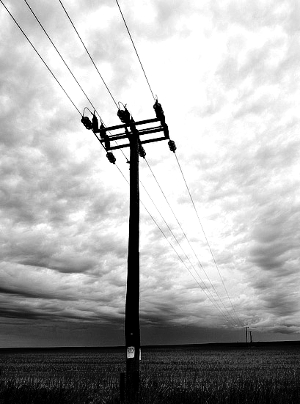Coober Pedy power deal slammed
 Some SA councillors have been accused of “one of the most serious examples of maladministration” that the state’s ombudsman has ever seen.
Some SA councillors have been accused of “one of the most serious examples of maladministration” that the state’s ombudsman has ever seen.
The South Australian ombudsman has reviewed the District Council of Coober Pedy’s $198.6 million power purchase agreement with private supplier Energy Generation Pty Ltd, which would see the company generate and sell electricity to the council for a 20-year period.
The council entered into the deal in 2016 without a competitive tender process.
The ombudsman's report finds several council members publicly acknowledged that when the deal was signed, the council had already seen a consultant's report that showed “savings of approximately $85 million were available to the council on the open market”.
“This remains one of the most serious examples of maladministration in public administration I have observed since the relevant provisions of the ICAC [Independent Commissioner Against Corruption] Act were enacted,” ombudsman Wayne Lines said in his report.
“In my view, each of the elected members remaining on the council who participated in that decision should now consider their position.”
The ombudsman said he is “concerned that the elected body appears unwilling to accept ownership and responsibility for the decision to execute the agreement”.
He suggested the Local Government Minister consider recommending to the Governor that the District Council of Coober Pedy be declared a defaulting council.
The probe also looked at Department of State Development and former energy minister Tom Koutsantonis’ relationship to the deal and subsidies provided.
It found they did not commit maladministration.
The ombudsman did say Mr Koutsantonis should have requested more information.
“I consider that it would have been prudent for Mr Koutsantonis to have requested further information from the department as to how it was satisfied that the costs of the agreement were fair and reasonable when considered against comparable alternatives,” the ombudsman said.
“Although maladministration in public administration may arise from a public officer's failure to act, I am not satisfied that Mr Koutsantonis' omission to request further information from the department resulted in the substantial mismanagement of public resources in this instance.”
The department was not found to have acted improperly either.
“It is nevertheless concerning that the department and the council, in reaching their respective decisions as to whether to support the project, each appear to have proceeded on the understanding that the other bore ultimate responsibility for assessing whether the costs of the project were fair and reasonable,” the ombudsman said.
“Some criticisms notwithstanding, I am ultimately satisfied that the department undertook reasonable endeavours to satisfy itself that subsidising the project presented value for money to the state.”







 Print
Print